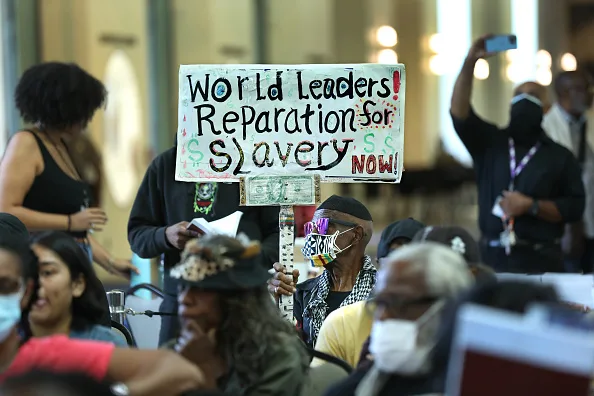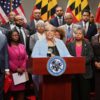
AFRICA AND The Caribbean have joined forces to call for reparations for slavery at a historic meeting.
Representatives from African and Caribbean nations attended a series of meetings in Bridgetown, Barbados, last week, to formulate a strategy to demand reparations.
The ground-breaking meetings included representation from the University of the West Indies (UWI), the Economic, Social and Cultural Council of the African Union (AU), Barbados’ government, grant-making network Open Society Foundations and the Caribbean Pan African Network, Reuters reported.
According to a report in news a outlet, the meetings signal the beginning of an “intercontinental campaign” demanding reparations for slavery.
“This is a historic moment… humanity cannot go forward with all the toxic interferences of colonisation,” Sir Hilary Beckles, head of the CARICOM Reparations Commission, told a news conference on Thursday.
“We have to clean up this mess to allow humanity to function.”
Those attending the meetings included ambassadors from the African Union (AU) and the Caribbean Community (CARICOM).
“It is crucial to recognise how slavery, colonialism and racism intersect and impact the lives of Black people around the world,” said AU official Youssouf Mandoha.
The Caribbean Community’s (CARICOM), 10-point Reparations Plan has been referenced as a framework for justice, by key campaigners.
The CARICOM plan includes, a full formal apology, funding for repatriation to Africa, debt cancellation, education programmes, the return of cultural heritage and artefacts and other programmes and compensation.
Reparations movement
The landmark meeting, comes as the issue of reparations and the legacy of slavery continue to dominate international news.
Earlier this month, France’s court rejected a request for reparations by groups in the Caribbean island of Martinique.
The request came from three groups, who were seeking reparations for slavery on the French Caribbean island – which is part of the Lesser Antilles.
The court said the decision to reject the request was because none of the individuals produced evidence which showed they had “suffered individually” by what their ancestors had been through.
A lawyer representing the groups, Patrice Spinosi, blasted the court’s decision describing it as “a new missed opportunity.”
The European Union (EU) has also recently aid that Europe’s historic involvement in slave-trading caused “untold suffering” on millions of black people.
At a meeting with leaders of the EU and the Community of Latin American and Caribbean States (CELAC) in Brussels, the EU described slavery as a “crime against humanity,” according to Reuters.
In March this year, leading reparations campaigners in Grenada told its government to hold European countries “accountable” for their role in slavery.


